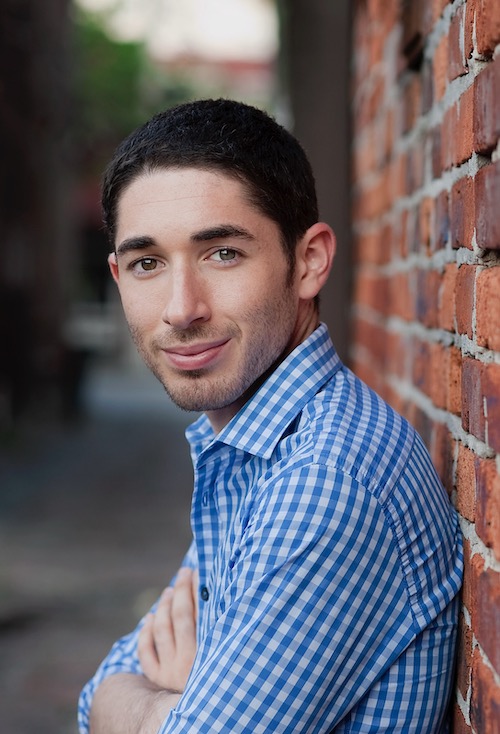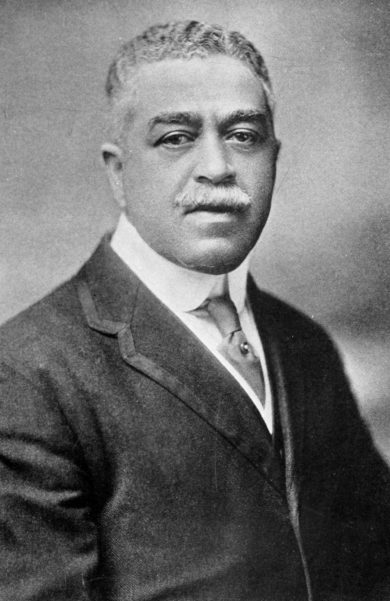Master Chorale presents a spiritual program from Bach to Burleigh
A choral concert that pairs Bach with Brahms sounds pretty natural. Bach needs no introduction, and neither does Brahms, the most historically minded of late 19th century composers, who was steeped in the Baroque master’s music.
But the third B on the Master Chorale of South Florida’s program Friday night wasn’t as famous or as obvious a match. He was Harry T. Burleigh, one of the first significant African-American composers in the United States. Burleigh lived from 1866 to 1949, brought spirituals to a wider audience, strongly influenced Dvořák and left a library of his own compositions.
“He had a remarkable effect on what we think of as characteristically American music,” artistic director and conductor Brett Karlin told the audience at Coral Ridge Presbyterian Church in Fort Lauderdale.
The chorale’s 20th anniversary season opened with a program called Bach, Brahms and Burleigh. A devotional thread ran through the concert, from the fiery Satan-versus-Christ texts of Bach to the warm comfort of Brahms to the unadorned, hymnlike music of Burleigh.
The two Burleigh pieces, “Deep River” and “My Lord What a Mornin’,” were quiet, contemplative works, with none of the triumph that could be heard in the Bach compositions.
“Deep River” opened in grave, organ-like tones, and throughout emphasized the lower voices, its pianissimo ending giving an impression of vast understated power. “My Lord What a Mornin’” was more dramatic, punctuated by sudden hushes and rising to a stark climax before the return of the reassuring main theme.
The concert opened with Bach’s motet Lobet den Herrn (Praise the Lord), performed in a light and buoyant manner, with the different vocal sections cascading one over the other in Bach’s counterpoint A quartet of soloists brought sweet-toned individual voices that contrasted effectively with the massed forces of the chorus.
The two Brahms works, Nänie and Schicksalslied, are both masterpieces, full of the harmonic warmth, rhythmic drive and compositional complexity that would appeal to anyone who appreciates the composer’s more familiar orchestral works. Unlike Bach or Burleigh, Brahms was a religious skeptic, emphasizing in both his texts and music comfort for the living rather than the triumph of resurrection.
“Even the beautiful must die,” was the first line of Nänie, or Funeral Song, Brahms’ setting of a poem by Friedrich Schiller. Written in memory of Brahms’s friend, the painter Anselm Feuerbach, it was composed by Brahms in his prime, between writing his Second and Third symphonies.
Although male voices occasionally sounded underpowered, the choir brought a warm glow to Brahms’ rich harmonies, with a flow to the music that never dragged, despite the solemnity of the subject.
A highlight throughout the concert was the fine, accurate and sensitive playing of the Arcadian Ensemble, a modest-sized orchestra that delivered a surprising amount of symphonic heft. The orchestra opened Nänie with lustrous wind playing and brought incisive bite to the work’s dramatic middle section.
Schicksalslied, or Song of Destiny, is Brahms’ setting of a poem by Friedrich Hölderlin. After the orchestra performed another well-played prelude, the chorus entered with luminous tones.
During the dramatic middle section, aggressive playing by the orchestra wasn’t quite matched by the chorus, which sounded too soft-edged and indistinct to express the combative tone of the music. But in general, this was an effective performance that brought out the rhapsodic, grandiose and intimate sides of one of Brahms’ greatest choral works.
The biggest work on the program was Bach’s Jesu, meine Freude (Jesus, My Joy), which sets texts on the conflicts between Jesus and Satan and between earthly temptations and spiritual victory. The work opened with an effectively dark and swirling chorus, establishing the yearning for the solace of Christ.
Five soloists sang as an ensemble, in the second section and in various sections throughout. Although there were intonation issues among the soloists, their singing was sensitive and well-articulated, providing an effective touch of individuality against the massed forces of the chorus.
Particularly effective were the bravely affirmative tones of the Unter Deinem Schirmen, in which the words invoke Jesus’ protection against the storms of Satan and hell.
In a talk before the performance, when Karlin described Bach as his favorite composer, he encouraged audience members to follow the performance on the texts provided with the programs, saying the words were key to appreciating Bach’s music. And the chorus’s performance did show great sensitivity to the meaning of the texts, for example, coming down hard on the word “trotz” or “despite,” in the phrases “Despite the old dragon” and “despite death’s jaws.” Another highlight was the verse “Gute nacht,” built from a simple motif that builds into a statement of great power and emotion.
The concert closed with one of Bach’s most famous melodies, Jesus, Joy of Man’s Desiring, given a brisk, graceful performance that ended an evening of religious drama and deep contemplation on a lighter upbeat note.
The Master Chorale of South Florida will repeat the program 4 p.m. Sunday at St. Mark Greek Orthodox Church, 2100 Yamato Road, Boca Raton. masterchoraleofsouthflorida.org
Posted in Performances
Leave a Comment
Sat Oct 22, 2022
at 12:12 pm
No Comments

